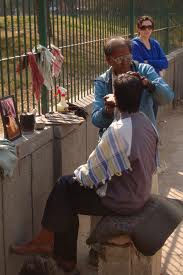News /
Dumbing-down in Polish schools and the Matura [185]
Re: matura
I took a cursory look at the matura exam, mathematics. In general, I like what I saw, but I do not judge the passing grade of 30%.
Basic Level. If this is designed for everyone, including future artsy professionals I say the level was adequate: a wide range of topics in 23 multiple choices problems (worth 1 point each ), and 10 open problems - worth 2-4 points each. The close problems were not dumb at all and required testing each of four possible options given. 50 points to earn, 170 minutes.
Extended level. 12 open problems, 50 points to earn, 180 minutes. I do not see much of difference between this level and the level of my own math exam, long time ago. Anyone passing this exam would be adequately prepared for engineering/mathematics/physics faculties.
Re: education level
The never ending educational reforms are the worst enemy of the education itself, because each half baked "revolution" introduces a whole new needs, such as new books, teachers training, etc. Twenty years ago kids coming from Poland to Canada were often being praised for their math knowledge and - in some cases - even moved up by one grade or two. Not anymore. At that time Canadian educational system was going through a full cycle: streaming, de-streaming then streaming again. I just laughed seeing how familiar it all looked.
But things finally stabilized here. According to PISA 2009 assessment results, pisa.oecd.org, Canada is placed at the 10th position in mathematics with 527 points (Shanghai China, 1st, 600 points), while Poland - at the 25th position with 495 points. Yes, reforms are needed in Poland, but they should be done the way Finland did it - starting with decent salaries, improved social standing, significant retraining of teachers, recruitment of the best brains. The rest will follow.
With respect to the courses themselves - there should be no place for any convulsive actions of the past, where few ridiculous decisions have been taken, such as teaching kids at grade one the elements of topology, groups, or sets. Heck, most of the primary school teachers had no clue what it meant, but they had to teach it. I was told about 600 page mathematical textbooks at grade 11, impossible to assimilate in any given time. Such "revolutions" produced high school graduates with unspoiled "tabula rasa" brains, doing something like this:
sin(a)=0.5,
hence a = 0.5/sin or better yet a = 0.5 * sin
 PolishForums LIVE / Archives [3]
PolishForums LIVE / Archives [3]


